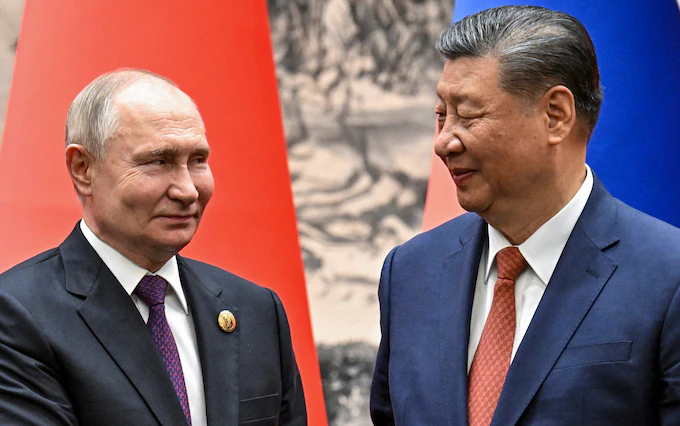China and Russia have a fascinating relationship, don’t they? They used to be fierce enemies but are now best friends. Xi Jinping and Vladimir Putin declared a “no limits” partnership just before Russia invaded Ukraine in February 2022.
It’s the kind of friendship that would make even the most cynical of us go, “Aww, how sweet.” While it hasn’t hit that mark yet, the countries’ economic, military, and political ties have grown stronger over the past decade.
This friendship wants to destroy the US-dominated global order.
Xi and Putin: Best friends forever?
Fun fact, the friendship actually started to strengthen after the 2003 US-led invasion of Iraq. The 2008 financial crisis further convinced both nations that the world’s trust in the global economic model was shaky.

In 2014, Russia’s annexation of Crimea led to Western sanctions, pushing Moscow to look for new allies, especially for its energy exports. China, with its booming economy, was a perfect fit. It became a massive buyer of Russian commodities and weapons, solidifying their bond.
Both Xi and Putin have a deep dislike for US alliances in what they consider their rightful places. For Russia, it’s NATO. For China, it’s the US’s network of defense treaties in the Indo-Pacific.
There is a very strong personal bond between the boys. Both leaders, products of tough childhoods, are determined to crush dissent and restore their nations to greatness, ending what they see as humiliation by the US and Europe.

Putin and Xi have met over 40 times. They made dumplings together in Tianjin and pancakes in Vladivostok. In 2019, Xi called Putin his “best friend.”
After his fifth inauguration in May, Putin’s first foreign trip was to China, reciprocating Xi’s visit to Moscow last year. That was when they declared that Russia-China relations were at their best in history.
The economic benefits
Since 2014, Russia has sold China some of its most advanced weapons systems, including $5 billion worth of S-400 anti-aircraft missile systems and SU-35 attack jets.
China has become a main buyer of Russian oil, gas, and coal, negotiating favorable prices as Europe slashed imports.
Within two months of Crimea’s annexation, Russia’s Gazprom PJSC signed a deal to supply China with natural gas through a pipeline called the Power of Siberia, worth about $400 billion, even at a lower price than Europe paid.

They are now working on another pipeline deal. Russia and China have also coordinated their positions at the United Nations Security Council, where both hold veto power, making common cause against the US.
The combination of economic, military, and political muscle that China and Russia can muster is inspiring other autocratic leaders and undermining confidence in democracy.
The besties argue that the rules-based international order promoted by the US only benefits it and its allies, who break the rules whenever they want.
Reporting by Jai Hamid





